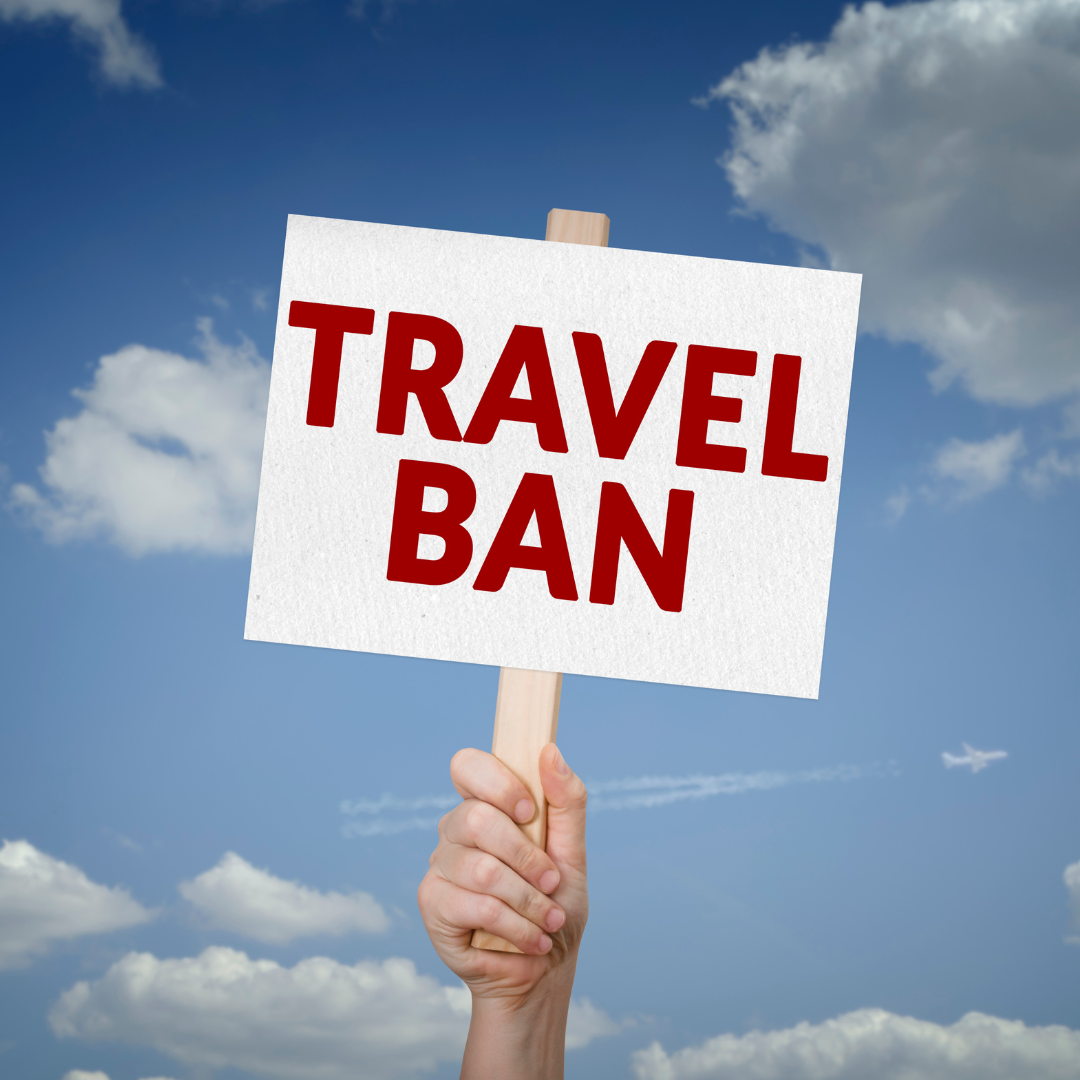Presidential Proclamation: Entry Restrictions for Nationals of Certain Countries (Effective June 9, 2025)
President Trump has issued a new Presidential Proclamation imposing visa and entry restrictions on nationals from 19 countries. These restrictions are based on deficiencies viewed by the Administration in identity-management, screening, and cooperation with U.S. authorities, as determined under section 212(f) of the Immigration and Nationality Act. The restrictions are categorized as either a full suspension of entry or a partial suspension of entry, depending on the country.
Full vs. Partial Suspension
Full Suspension of Entry
Applies to both immigrant and nonimmigrant visas issued by U.S. consulates. Nationals of the following 12 countries are broadly barred from securing immigrant and nonimmigrant visas to enter the U.S. unless they qualify for an exception:
- Afghanistan
- Burma (Myanmar)
- Chad
- Republic of the Congo
- Equatorial Guinea
- Eritrea
- Haiti
- Iran
- Libya
- Somalia
- Sudan
- Yemen
Partial Suspension of Entry
Applies to specific visas issued by U.S. consulates, including:
- All immigrant visas
- Nonimmigrant B-1/B-2 (tourist/business), F (student), M (vocational), and J (exchange visitor) visa
Applies to nationals of the following 7 countries:
- Burundi
- Cuba
- Laos
- Sierra Leone
- Togo
- Turkmenistan
- Venezuela
Visa categories not listed above (such as H-1B or L-1) are not categorically barred but may be issued with reduced validity.
Who Is Affected
The proclamation applies only to individuals who:
- Are outside the U.S. as of June 9, 2025, and
- Do not already possess a valid visa on June 9, 2025
Those in the or outside the U.S. on or after June 9, 2025 and who have a valid visa are not impacted – they may reenter the U.S. using a valid visa on or after June 9, 2025.
Categorical Exceptions
The following categories are exempt from the ban, regardless of nationality:
- U.S. lawful permanent residents (green card holders)
- Dual nationals traveling on a passport from a non-designated country
- Individuals with valid diplomatic or official visas (A, G, NATO, C-2/C-3)
- Athletes and support staff traveling for major international sporting events
- Immediate relatives entering with specific family-based immigrant visas (IR-1, IR-2, IR-5, CR-1/CR-2) with proof of identity and relationship
- Adoption-based immigrant visa holders (IR-3/4, IH-3/4)
- Afghan Special Immigrant Visa holders
- Special Immigrant Visas for U.S. government employees
- Immigrant visa applicants from Iran who are members of persecuted ethnic or religious minorities
Discretionary Waivers
Case-by-case waivers may be granted to those impacted by this Proclamation:
- By the Attorney General, for travelers whose entry serves a U.S. Department of Justice interest (e.g., criminal trial witnesses)
- By the Secretary of State, for travelers whose entry is in the U.S. national interest
No Impact on Asylees, Refugees, or Those in the U.S.
- The proclamation does not revoke existing visas
- It does not apply to individuals already in the U.S.
- It does not bar access to asylum or withholding of removal protections
Practical Impact
- Foreign nationals from affected countries should not travel internationally unless they have a valid visa or fall into an exempt category
- Visa issuance will be suspended or delayed for most applicants from designated countries
- Employers, universities, and family petitioners should assess whether a prospective beneficiary is impacted and seek legal guidance
The Proclamation includes nuances and raises questions which require the Administration’s clarification.
Maggio Kattar will continue to monitor any changes or updates and provide additional guidance as appropriate.
For case-specific questions or assistance with travel planning, immigration sponsorship, or exemption eligibility, please contact our office.

